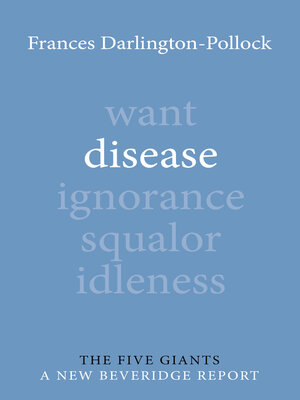
Sign up to save your library
With an OverDrive account, you can save your favorite libraries for at-a-glance information about availability. Find out more about OverDrive accounts.
Find this title in Libby, the library reading app by OverDrive.



Search for a digital library with this title
Title found at these libraries:
| Loading... |
In 1942 life expectancy at birth was 66 for women and 60 for men. Death was usually due to degenerative and infectious diseases. The greatest postwar success in the fight against disease was the establishment of the NHS and care that was free at the point of delivery. Life expectancy rose dramatically, but since 2011 incremental improvements have stalled and even, in some regions, begun to reverse. Infant mortality rates have crept up and the postcode lottery of health provision underscores the level of social inequality in the UK.
Good health is not simply the absence of disease. It is the collective of physical, social and mental well-being. It is the product of nutrition and genetics, of healthy lifestyles and preventative health interventions. It is the interaction between the conditions in which we live, work, play and age. Yet access to many of the things that make and keep us healthy are not evenly distributed in the population. Achieving good health is then deeply entwined with all aspects of society and cannot simply be solved by policies in one area alone.
In our rediscovery of Beveridge, the shadow of the pandemic looms large. It is has never been more urgent to address the underlying causes of Disease. And it has never been clearer that these determinants are not only social or physiological, but also political.






